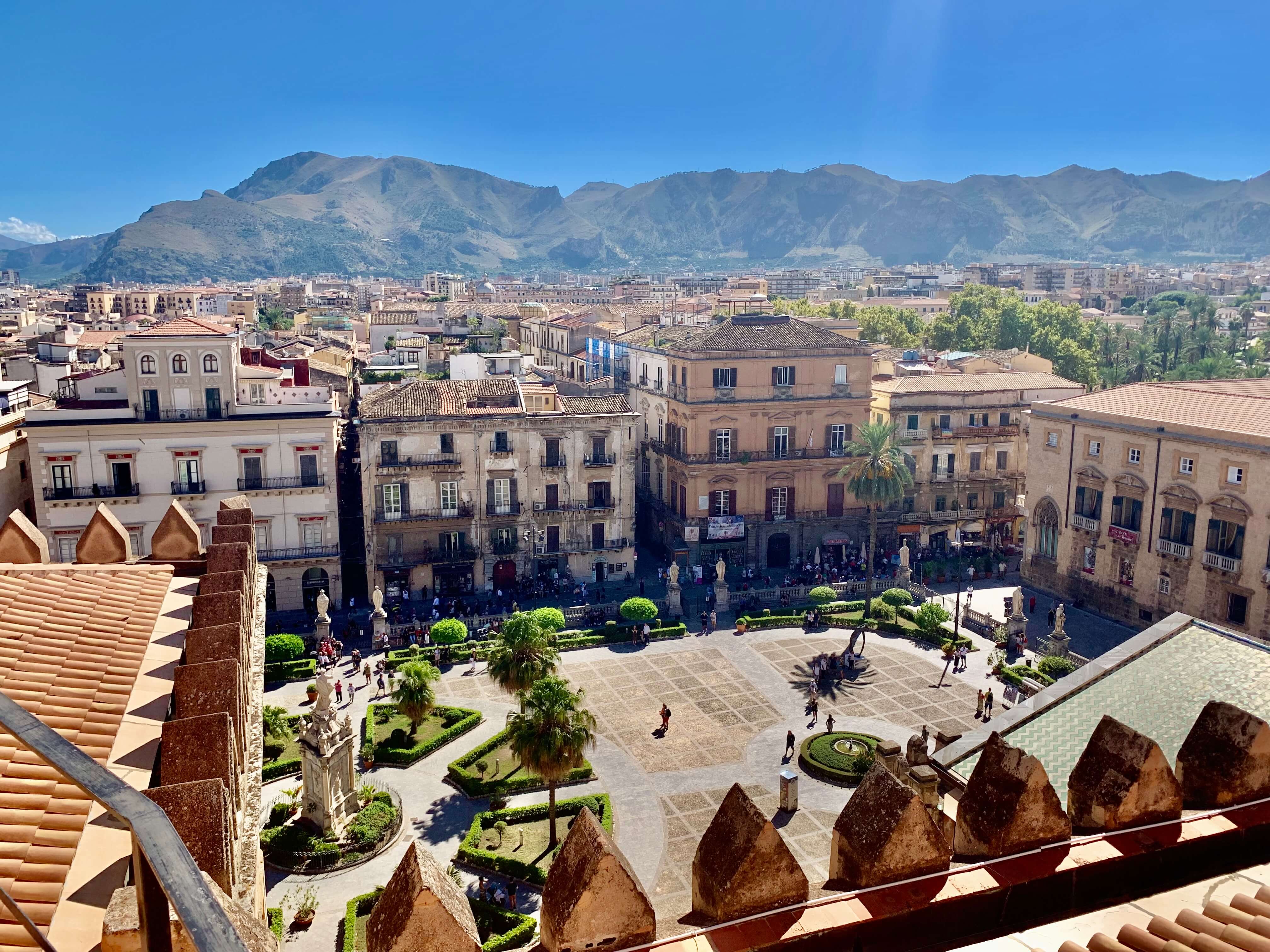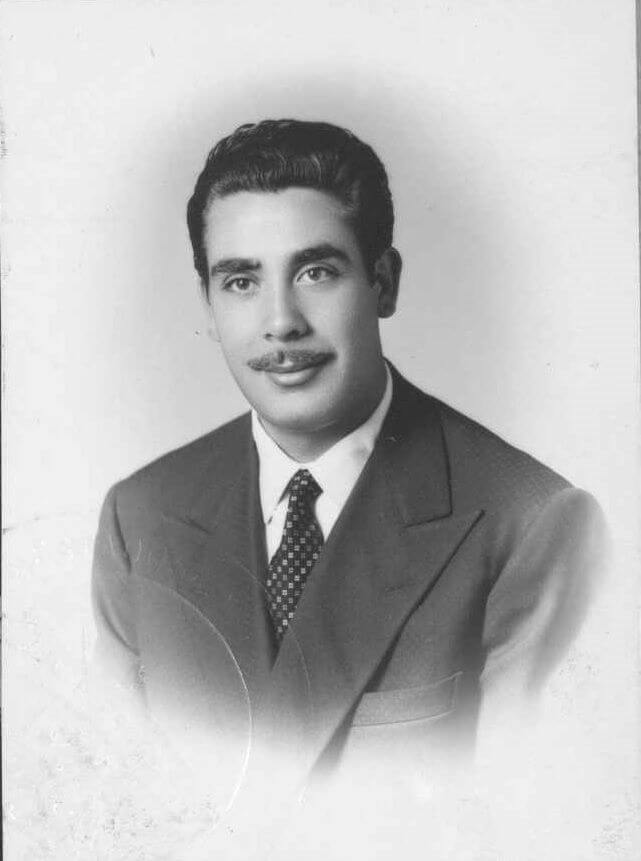- Home
- Sicilian Culture
- Mafia Movies
mafia movies and the american dream - from scarface to the sopranos
Mafia movies have made money for Hollywood for nearly a hundred years. What is it in them that makes them so fascinating? What hopes, dreams, and fears do people project into them?
In Italy, the fascination with the Mafia goes back even further. Before mafia movies, there were other kinds of mafia entertainment. It started in the mid-19th century when the Sicilian-born writer Giovanni Verga had an idea.
The Southern provinces had suffered in the aftermath of the unification of Italy in 1860. The southern problem, they called it.
Poverty, misery, social inequality, and the resulting crime appealed to the newspaper-reading public in northern Italy. Verga's idea was to monetize from these problems of his home region.
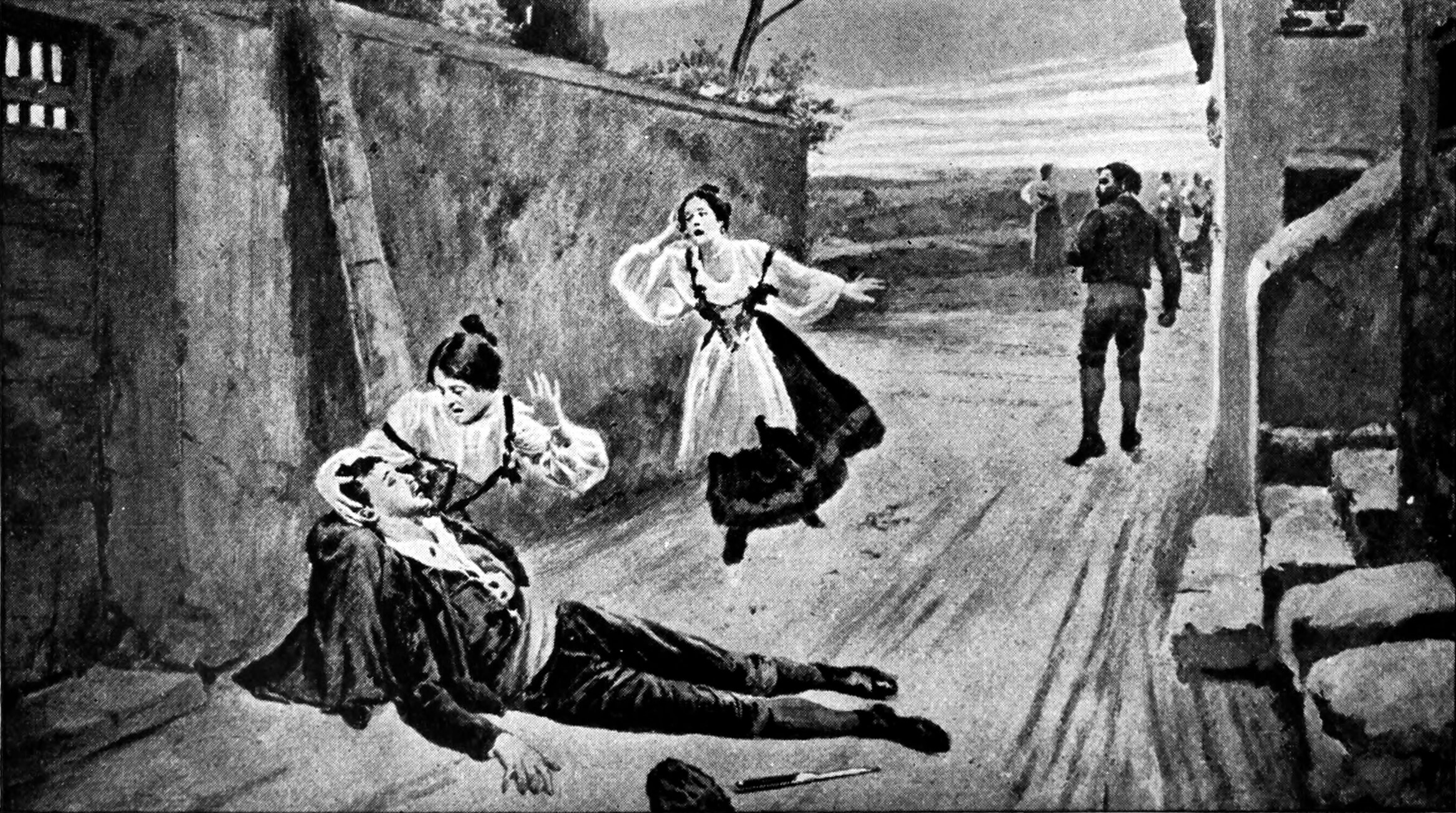 Giovanni Verga's short story Cavalleria Rusticana (Rustic Chivalry) is most famous as an opera by Pietro Mascagni. The opera plays at the end of Godfather III, as events escalate towards the climax of the movie.
Giovanni Verga's short story Cavalleria Rusticana (Rustic Chivalry) is most famous as an opera by Pietro Mascagni. The opera plays at the end of Godfather III, as events escalate towards the climax of the movie.Verga made good money from his Sicilian stories. In them, he mythologized the Mafia and other problems in Sicily.
Eventually, however, he started to regret this mythologizing of his countrymen's misery. Verga withdrew his last book from the market just before it was published. After that, he stopped writing altogether.
Since then, Hollywood movies about the Mafia have brought the mafiosi to the public's attention. From the start, these gangster movies both repelled and fascinated the movie-going public.
In reality, living under the Mafia conditions is dull and depressing. So where comes this fascination with mafia films? What do people identify with when they watch them?
In his book "The Mafia: A Cultural History," Roberto M. Dainotto provides one answer. In the films - he argues - the Mafia serves as a metaphor for American capitalism. Something we all can relate to.
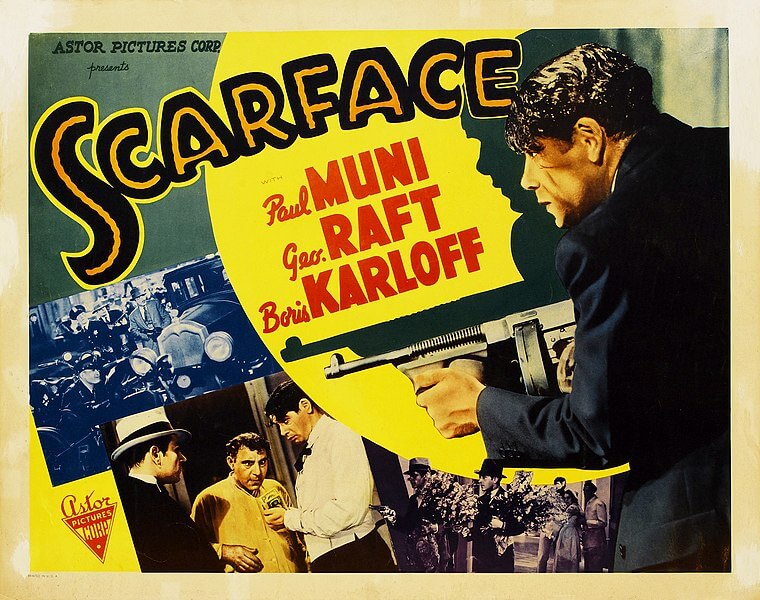 The original Scarface (1932) shocked the audiences of its time. The hero was modeled after Al Capone, famous gangster of the time.
The original Scarface (1932) shocked the audiences of its time. The hero was modeled after Al Capone, famous gangster of the time.Early Mafia Movies: The Lone Hero Era
In the early Mafia movies, the hero was a criminal who came from poor conditions. But he didn't give up. Instead, he was determined to make his way to riches. The most famous of such films are the original Scarface (1932) and Little Caesar (1931).
The new continent had seen a massive influx of people from southern Italy. Some were fleeing poverty, others the police.
In America, these immigrants were by no means welcomed with open arms. Racism was rampant. A Sicilian, coming to the land of the free, started his new life from the bottom of the ladder. If not altogether under the stairs.
The mafia crime associated with the Italians was very much on people's minds. It started at the beginning of the 20th century when a dismembered body was found in a barrel in the streets of New York.
People were shocked by the crime, whose motives were linked to Mafia activities.
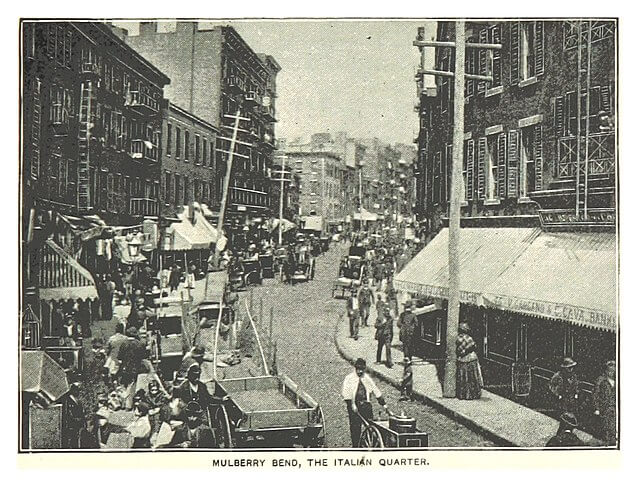 The Italian Quarter in New York, 1893. A decade later, a dismembered body was found in a sugar barrel, which stirred the public's interest in Cosa Nostra.
The Italian Quarter in New York, 1893. A decade later, a dismembered body was found in a sugar barrel, which stirred the public's interest in Cosa Nostra.This was a time when the Mafia still focused on its traditional methods. Things like extortion and kidnapping. Then came the Prohibition. Gangsters changed their ways from plain violence to the "entertainment industry." Meaning booze, prostitution, and gambling.
The old-time country mafioso gave way to the new all-American self-made man. This was also the image that the early mafia movies sold to the public. From rags to riches. The American Dream.
Scarface (1932) shocked the public with its violence. At the same time, it also provided something to relate to. The story's anti-hero is an Italian emigrant Antonio "Tony" Camonte. He's aiming for what every good American was expected to aim for. He was chasing the American Dream.
In the film, Tony dreams of being able to change a clean shirt every day. Something that wasn't taken for granted in 1930s America. Especially for an immigrant.
At the same time, these early mafia movies also revealed the flip side of the American Dream. While chasing the riches, the main characters isolated themselves from others.
The success had its price. Pursuing one's dream meant the destruction of shared goals. Individual happiness meant the collapse of communal values.
In the early mafia movies, the protagonist had to face the consequences of his actions. In the end, he died violently and alone. Bad deeds didn't go unpunished.
The Godfather Trilogy: The Triumph of Capitalism
Although early gangster movies served as educational stories, they were also seen as glorifying the violent lifestyles of their protagonists. As a result, the making of mafia movies was banned in the United States for many decades.
When the ban was lifted in the 1970s, the world had changed. No longer was a clean shirt every day a dream come true.
It was the golden age of capitalism. Prosperity was abundant - in America as in the rest of the Western world. So, the heroes of mafia movies also had to change.
 Al Pacino played mafia crown prince Michael Corleone in the Godfather saga. (Although the word 'mafia' is never mentioned in the first movie. They prefer to talk about 'business.')
Al Pacino played mafia crown prince Michael Corleone in the Godfather saga. (Although the word 'mafia' is never mentioned in the first movie. They prefer to talk about 'business.')The Godfather films depict the journey of war hero Michael Corleone from reluctant mob crown prince to 'respectable' capitalist. The Mafia of the Godfather movies looks much the same as the mythical organization Verga used to make money from.
Mafia isn't the only mythical thing in them, though. It only served as a metaphor for that other myth: the American Dream. Coppola himself referred to this on many occasions. He wasn't interested in the Mafia, he said. He was interested in America.
In The Godfather Trilogy, Michael tries to turn his family from crime to legitimate business. No more need to be a lone hero, to get shot in the end. Mafioso and his money are greeted with gratitude by the society.
Money rules the world. Prosperity and abundance are within everyone's reach. The Mafioso has won, society has lost. The institutions of the past, such as religion and the family, are wrecked.
The gangster is no longer a pathological distortion of the American Dream. Turns out he was in its core all along, just waiting for his turn to rise on the surface.
Still, the ending is no more satisfying for Michael Corleone. The price has been too high. He has sacrificed everything he loved to make his dream come true.
He dies alone, not from a bullet, but with the weight of his deeds on his shoulders. The American Dream turns out to be a lie. Money doesn't help when life itself has lost its meaning.
The Sopranos: No More the Good Old Days
Scarface had a dream, and so did Michael Corleone. Scarface wanted a new shirt every day. Michael wanted to escape the business world to the idyllic Sicily of the old.
Tony Soprano's dreams, on the other hand, seem to be going nowhere. "Oh, fuck the dream, it's just a dream!" he yells to his therapist, who tries to interpret one of his aimless dreams.
The Sopranos television series is set in the early 2000s. The series follows the life of Tony Soprano - a "waste entrepreneur" - and his family and friends.
In reality, Tony is the boss of a mafia Family. His criminal lifestyle enables him to provide a good living for his other family - wife, daughter, and son.
But Tony has a problem. Panic attacks plague him. He treats them at Dr. Melfi's psychotherapeutic clinic.
In The Sopranos, the American dream has come to an end. Everything has been achieved. All the stones have been turned. Yet the prevailing feeling is the one of loss. The American dream has been revealed for exactly what it was: just a dream.
Even the Mafia is not what it used to be. Gone is all the mystic. On television, the old mafia movies play over and over again. People talk about it at breakfast tables, on golf courses, in universities...
 Tony Soprano (James Gandolfini) has a lot on his mind.
Tony Soprano (James Gandolfini) has a lot on his mind.The same problem faces the viewer of the series. Everything that can be said about the Mafia has already been said and seen. Tony and his mobster friends joke around with clichés from old mafia movies.
Tony yearns for the good old days. Like he says, things were tougher then, but still somehow better. But, as things are, he just has to go on, "laughing like a clown." Tony has become an ironic caricature of himself.
His kids are growing up, his wife complains, and he suffers from depression. Everything seems to go around in circles. There's nowhere to go, nothing left to strive for.
When Tony complains about this in his psychiatrist's office, Dr. Melfi comforts him: "Many Americans, I think, feel that way too."
If the situations and characters in The Sopranos seem to repeat the same pattern, the same goes for American society of its time.
Social mobility had declined by the turn of the millennium. This undermined the whole American Dream. No more rise from rags to riches. The poor are doomed to stay poor while the rich get richer. In the Sopranos' world, this reflects also to the mafia. "The doors are closed." No new members are taken in.
So what's next? The Sopranos don't give a clear answer. The series ends with a black screen. The energy is exhausted. There is nothing more to say. Nothing to do but disappear.
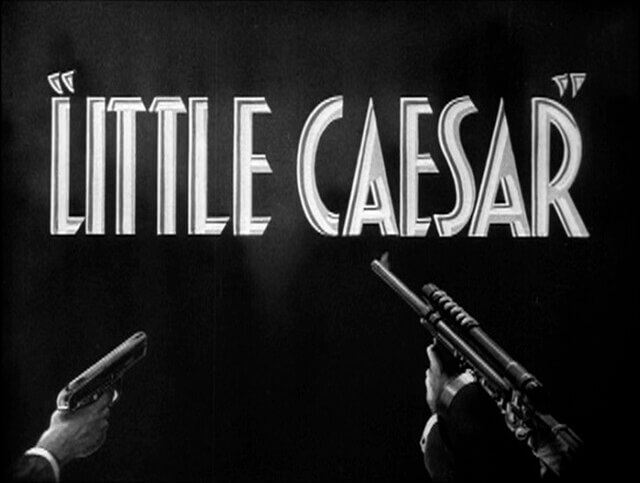 Little Caesar (1931), one of the classic mafia movies. Made when there were still plenty to strive for.
Little Caesar (1931), one of the classic mafia movies. Made when there were still plenty to strive for.Conclusion
Capitalism and the Mafia are both manifestations of the modern age. They have gone hand in hand for a century and a half.
You could say that the Mafia is a shadow of capitalism, a lawless world where only money and power matter.
In the same way, under capitalism, everything revolves around money. Moral values, nature, and people are ultimately subordinate to the economy.
In this respect, it is no wonder that Mafiosi has become a metaphor for the American Dream. They are not that far apart in real life either. The Mafia is very much like capitalism but without restrictions.
Organized crime is also necessary for the world economy. If all its money were withdrawn, the whole system would collapse.
Today, mafia movies and the American dream seem to be in crisis. And the same can be said about the actual Cosa Nostra. The old Mafia has lost its footing to even more brutal organizations. The cartels in Latin America, Camorra, and 'Ndrangheta in Italy.
As for the American dream... who knows? Like the Mafia, capitalism is known for its ability to adapt itself to new situations.
And so are dreams.
See Also:
Godfather Locations: Michael Corleone in Sicily
(Last edited: December 19, 2024)
Recent Articles
-
Sicilian Food - Rich Flavors, Endless Passion
Apr 09, 25 09:54 AM
All you need to know about Sicilian food, its ingredients and history. -
Things to Do in Palermo - Tips for a Perfect Holiday
Apr 05, 25 04:27 AM
Things to Do in Palermo - From historic landmarks to delicious food, this guide has it all. -
The Story of Tommaso Buscetta: From Mafia Boss to Key Witness
Mar 30, 25 05:12 AM
Tommaso Buscetta built Sicilian Mafia into a global empire - which he then destroyed.
Follow MANY FACES OF SICILY on Facebook, Instagram, Bluesky & Pinterest
Contact: vesa@manyfacesofsicily.com

